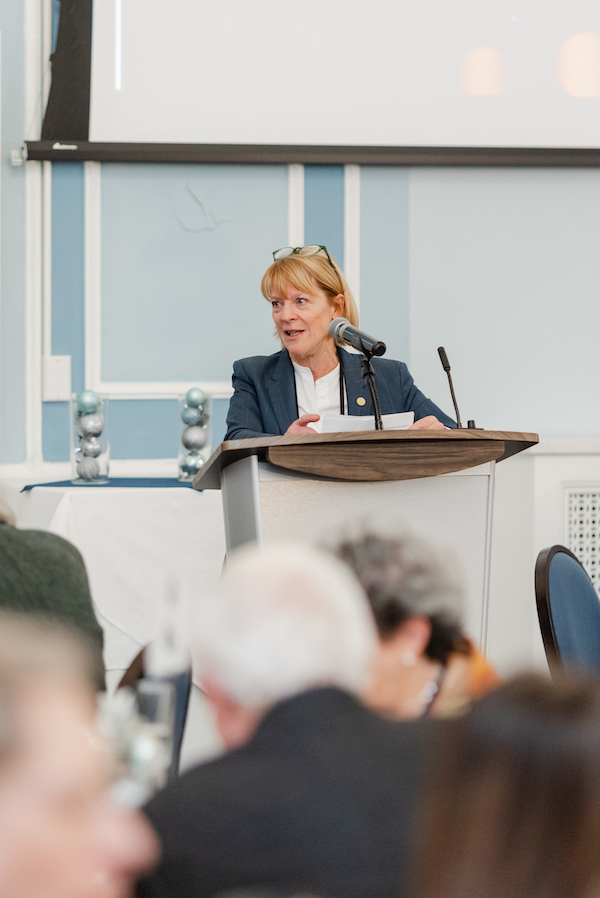Dr Gillian Hawker, Chair, Department of Medicine, University of Toronto
Nobel Centenary Dinner, Faculty Club, University of Toronto, November 27, 2023
It is with great pleasure and a sense of historical significance that I speak tonight on behalf of the Department of Medicine at the University of Toronto.
Along with our colleagues in the Dept of Physiology, the Department of Medicine is extremely proud to be a driving force behind the discovery of insulin and a century of world-class diabetes clinical care, education, and research. The discovery of insulin just over 100 years ago is one of the most significant advances in the history of medicine. Few events have transformed the lives of so many people, so suddenly and profoundly. Insulin focused the eyes of the world on Toronto and placed the university at the forefront of medical research and treatment.

There is an important story that underlies this discovery and the century that followed. That is the birth of academic medicine and the physician scientist in Canada. Discoveries like insulin cannot happen without partnership between clinicians who care for patients and lab-based scientists – this is what exemplifies translational research.
In 2019, the department of medicine celebrated the 100th anniversary of Sir John and Lady Flora Eaton’s legacy gift, which established the first endowed Chair at the University of Toronto and the first full-time Chair of Medicine. Dr. William Goldie, the Eaton’s physician, understood that for physicians to play a meaningful role in education and research they needed resources. He asked the Eaton family for their support, and they graciously gave it. According to historian Edward Shorter, “The Eaton Chair marked the emergence of academic medicine in Canada […].”
It was this investment in academic medicine that propelled the establishment of the clinical investigation unit in the College Wing of TGH . Three years later, in 1922, it was there that 14-year-old Leonard Thompson became the first person to receive the extract of what would come to be called “insulin”. While the relationships between Banting, Best, McLeod and Collip were not without friction, insulin would not have happened without the cross pollination of basic science and clinical medicine.
I often joke that being a physician scientist at U of T is like being a kid in a candy shop.
The talent here is truly great and it is through dynamic collaborations across this great university that we will continue to press towards improvements in diabetes care and outcomes. the department of medicine is because we and our partners across U of T, our hospitals and industry have built a culture of discovery, innovation, and inclusive excellence. Our unyielding desire to do better by our patients has put us at the forefront of scientific discovery and academic medicine.
But, as we celebrate this momentous occasion, it’s essential to recognize that our work is far from over. As you heard this afternoon, diabetes continues to pose a significant global health challenge and our commitment to ensuring that discoveries make their way to clinical trials and evidence from clinical trials makes its way to patient care and health policy remains unwavering. The Department of Medicine is dedicated to pushing the boundaries of medical knowledge to improve the lives of individuals affected by diabetes and other complex health conditions.
May the next 100 years be marked by even greater strides in both social and clinical innovations that lead not only to improved treatment, but ultimately a world free from diabetes.
Back to >> Dinner Program and Speeches